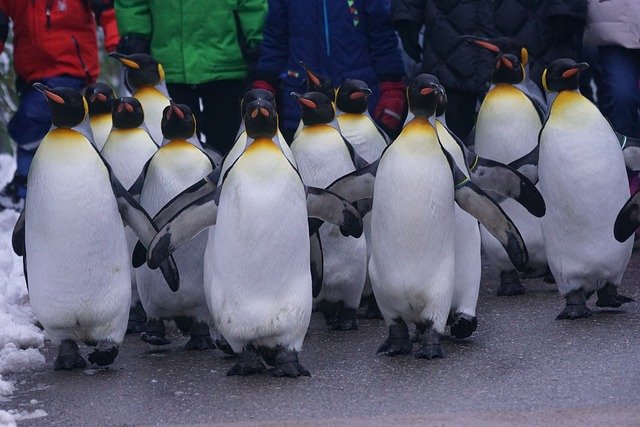**Title: "The Social Dynamics of Penguin Colonies: How These Birds Thrive in Harsh En

The Social Dynamics of Penguin Colonies: How These Birds Thrive in Harsh Environments
Penguins are fascinating creatures that have adapted remarkably well to some of the harshest environments on Earth. Living in extreme cold, often in colonies that can number in the thousands, these birds exhibit complex social behaviors that are crucial for their survival. In this post, we'll explore the social dynamics of penguin colonies and how these interactions help them thrive in their challenging habitats.
1. The Importance of Social Structure
Penguins are highly social animals that rely on their colonies for various aspects of survival. The social structure within a colony helps to:
Provide Protection: Being part of a large group offers safety in numbers. Penguins can defend against predators, such as seals and birds of prey, by huddling together and using collective vigilance.
Facilitate Breeding: Many penguin species are monogamous, forming long-term pair bonds. The social dynamics within a colony support courtship, mating, and cooperative breeding, where both parents share the responsibility of incubating eggs and feeding chicks.
Enhance Resource Sharing: Penguins often engage in social foraging, where they can benefit from the knowledge and experience of other colony members. This behavior improves their chances of finding food in an environment where resources can be scarce.
2. Communication and Social Interactions
Communication is key to the social dynamics of penguin colonies. Penguins use a variety of vocalizations, body language, and visual displays to interact with one another. Some important aspects include:
Vocal Calls: Each species of penguin has distinct calls that help individuals identify their mates and chicks among the cacophony of sounds in a colony. This is particularly important during the breeding season when many birds are nesting simultaneously.
Body Language: Penguins use postures and movements to convey messages. For example, a penguin may bow or flap its wings to establish dominance or attract a mate.
Huddling Behavior: In extreme cold, penguins will huddle together to conserve warmth. This social behavior not only helps them survive frigid temperatures but also fosters social bonds within the colony.
3. The Role of Leadership and Hierarchy
Within penguin colonies, there is often a hierarchy that influences social interactions. Dominant individuals may have better access to resources and mates, while subordinates may need to navigate social complexities to find their place. Leadership can manifest in various ways:
Foraging Leadership: Experienced foragers may lead groups to productive feeding areas, demonstrating the importance of knowledge transfer within the colony.
Conflict Resolution: Social hierarchies can lead to conflicts over territory or mates. Dominant penguins often play a role in mediating disputes, which helps maintain harmony within the group.
4. Adaptations to Environmental Challenges
The social dynamics of penguin colonies are not just about cooperation; they also involve adapting to environmental challenges. For example:
Response to Climate Change: As temperatures rise and ice habitats shrink, penguin colonies must adapt. Social behaviors, such as relocating to new breeding grounds or altering foraging strategies, are essential for their survival.
Resource Scarcity: In times of food shortage, penguins may exhibit cooperative behaviors, such as sharing food or working together to find new foraging areas, showcasing their resilience in the face of adversity.
Conclusion
The social dynamics of penguin colonies illustrate the incredible adaptability of these birds in harsh environments. By forming strong social bonds, communicating effectively, and navigating complex hierarchies, penguins not only survive but thrive in some of the most challenging conditions on our planet. As we continue to study these remarkable creatures, we gain valuable insights into the importance of social structures in the animal kingdom and the ongoing challenges posed by a changing environment.
Feel free to share your thoughts or experiences with penguins in the comments below! 🐧
